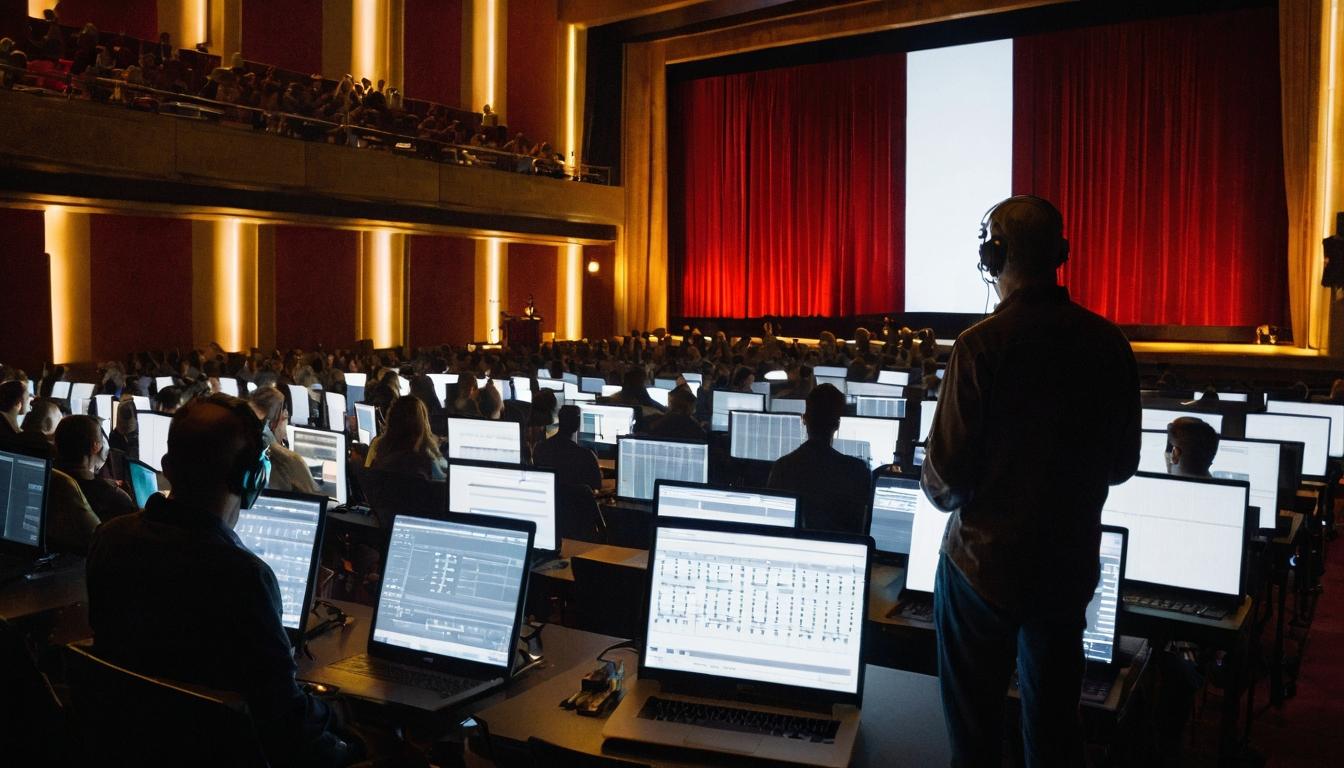The lights dim, the audience settles, and before the first image appears on screen, something remarkable happens. A single note hangs in the air, then another, and suddenly you're transported. This is the magic of film music—the invisible character that shapes our emotional journey through cinema. Yet while audiences flock to see their favorite actors and directors receive accolades, the composers working in soundproof rooms remain Hollywood's best-kept secret.
Walk through the halls of any major studio today, and you'll find a quiet revolution underway. Film composers are no longer content to simply write pretty melodies that accompany the action. They're becoming architects of narrative, building emotional frameworks that directors rely on to tell their stories. Hans Zimmer's team at Remote Control Productions has become something of a composer factory, mentoring a new generation who are pushing boundaries in ways that would have been unthinkable a decade ago.
What's particularly fascinating is how technology has democratized the scoring process. Where once composers needed access to expensive recording studios and full orchestras, today's innovators are creating groundbreaking scores using everything from custom-built software to everyday household objects. Composer Mark Korven created the terrifying score for The Witch using an instrument he built himself called the Apprehension Engine—a contraption of strings, metal, and springs designed specifically to produce unsettling sounds.
This technological liberation has led to some of the most inventive scoring in recent memory. Ludwig Göransson's work on Oppenheimer used a string quartet to mirror the physicist's fractured mental state, while Mica Levi's score for Under the Skin employed microtonal shifts that created a sense of profound alienation. These aren't background elements—they're essential components of the storytelling, working on both conscious and subconscious levels to guide audience perception.
Yet for all this innovation, film composers face an uphill battle for recognition. The Academy Awards' Best Original Score category often overlooks the most daring work in favor of more traditional orchestral compositions. Industry insiders whisper about campaigns where studios push safer, more recognizable scores over experimental work that might better serve the film but prove harder to market.
Financial pressures have created another challenge. With streaming services dominating production, composers report being asked to create more music for less money in tighter timeframes. The result can be generic, temp-track-inspired scores that lack the distinctive voice that made film music memorable in earlier eras. One composer, who asked not to be named, described receiving notes from executives who wanted his score to sound more like something they'd heard in another film—the musical equivalent of painting by numbers.
But the most exciting developments are happening outside the studio system. Independent films and international productions are becoming laboratories for sonic experimentation. French composer Jean-Benoît Dunckel brought his background in electronic music to the sci-fi film Annette, creating a score that felt both futuristic and deeply human. In Korea, composer Mowg has developed a unique hybrid style blending traditional instruments with electronic elements that's become instantly recognizable.
The relationship between directors and composers has evolved into something closer to creative partnership. Christopher Nolan doesn't just bring Zimmer in during post-production—he involves him from the script stage, treating the score as integral to the film's DNA. This collaborative approach is spreading, with directors like Greta Gerwig and Jordan Peele building long-term relationships with composers who understand their artistic vision.
What does the future hold? The rise of AI in music creation has sparked both excitement and concern. Some composers are experimenting with machine learning to generate musical ideas or create complex textures impossible for human musicians to play. Others worry about algorithms replacing artistic intuition. The truth likely lies somewhere in between—AI as tool rather than replacement, much like synthesizers in the 1980s.
What's clear is that we're witnessing a golden age of film scoring, even if most moviegoers don't realize it. The next time you find yourself moved by a film, pay attention to the music. Notice how it makes you feel anxious before the character does, or how a simple melody can bring tears to your eyes. That's no accident—it's the work of artists who have mastered the science of emotion and the art of storytelling through sound.
The real revolution in film music isn't happening on award stages or in headline-grabbing controversies. It's happening in studios where composers are quietly redefining what movie scores can be, creating work that doesn't just accompany images but actively shapes how we experience them. They may work in the shadows, but their impact echoes through every frame.
The unsung heroes of cinema: how film composers are changing Hollywood from the shadows

